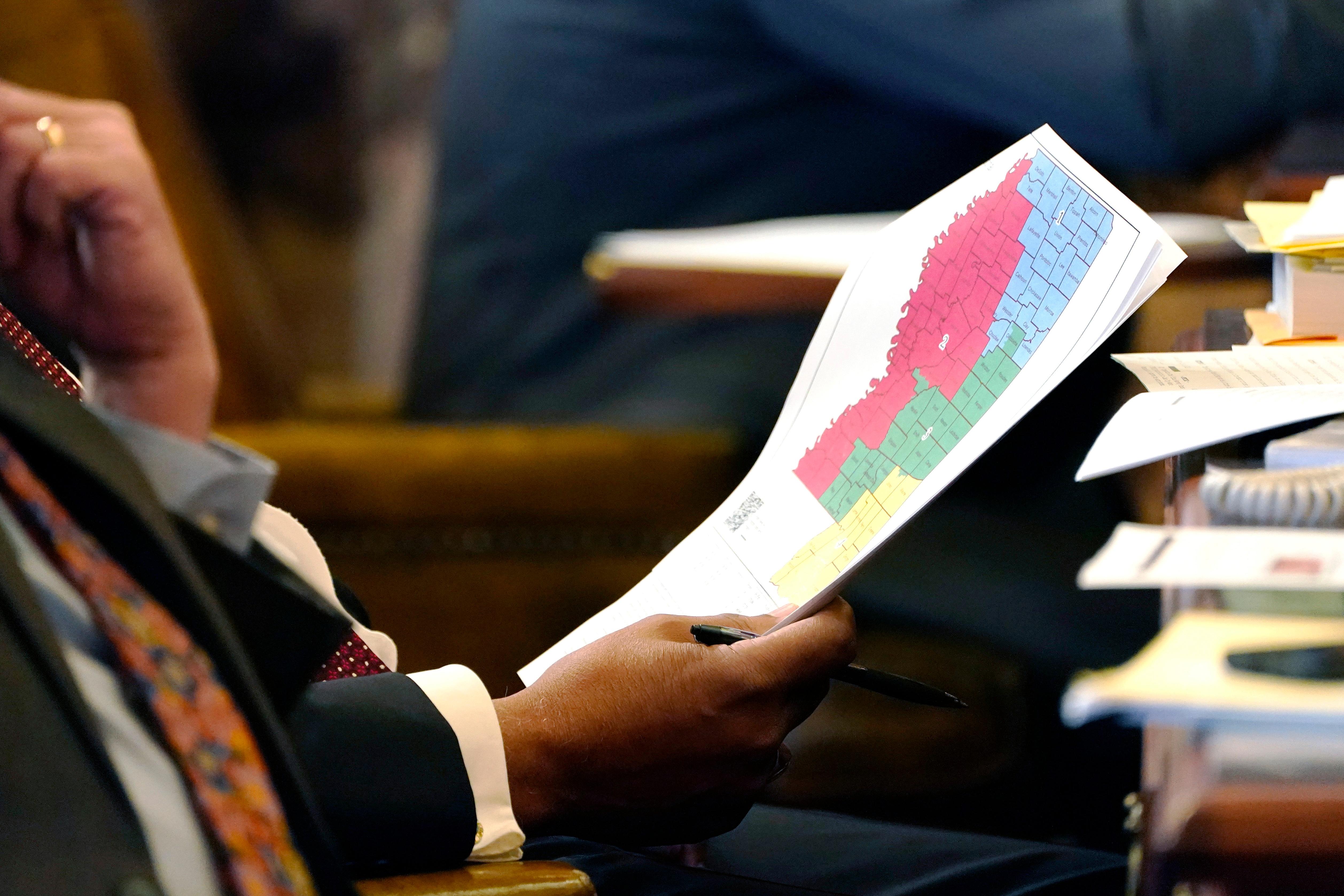A federal trial is underway to determine whether Mississippi’s state legislative district map, last drawn in 2022, is illegal.
Plaintiffs in the suit include several Black voters from across the state who say the redistricting process lacks transparency, and was designed to dilute the power of Black voters across the state – as well as benefit incumbents in the 2023 statewide election.
States often redraw their maps following each census to, in theory, better reflect changing demographics and populations in a given geographic area over time.
But the Mississippi State Conference of the NAACP, as well as the American Civil Liberties Union of Mississippi, Mississippi Center for Justice and several other legal organizations, say the 2022 maps deny Black residents an equal opportunity to participate in the political process.
Filed in the U.S. District Court for the Southern District of Mississippi, the complaint says that while the state’s Black population only continues to grow, districts drawn by legislators for DeSoto, Clarke and Hinds Counties – as well as regions like the Golden Triangle and near Jasper and Hattiesburg – don’t reflect that growth.
Jarvis Dortch, Executive Director at the ACLU of Mississippi, says the maps also don’t reflect the state’s demographic reality, and creates an imbalance between electoral power and Black voters – nearly half of the state’s population. Dortch believes both are in violation of the Civil Rights Act of 1965 and a clear example of racial gerrymandering.
“The maps really pack black voters into a select number of districts. Going into 2021, what we argued then was that the legislature should adopt maps that adequately reflect the state's population,” he told MPB News.
“Instead, they doubled down on the existing maps and made the maps even worse, and continue to peg black voters into a few districts in the House, a few districts in the Senate. And that really diminishes black voting power throughout the state.”
Further, the plaintiffs argue a legal and accurate redistricting process would produce at minimum four additional Black-majority Senate districts and three Black-majority House districts. Should the three-judge panel rule in their favor, the Mississippi legislature would be given a period to redraw the districts under the parameters of federal law.
Following the 2020 census, a joint legislative committee whose membership was mostly Republicans finalized the district map largely behind closed doors. Dortch says increased transparency and robust voter participation in the process would make it more democratic, and avoid issues such as those informing the lawsuit.
But instead of that, he says, Mississippi has districts that are either extremely White or extremely Black.
“In Hinds County, in a district in northeast Jackson that we were challenging, they pulled about 10 to 15% of the black voters out of that district and put them into an already majority black district, which meant that that district now was much Whiter, and that other district is much Blacker. And the black voters already had influence in the existing district that was majority black, but it takes away their influence in that district that was, say, 38, 40% black,” said Dortch.
“We've seen that happen over the past 20 years in Mississippi, where the goal has been to make districts either super black or super white, and doing that allows the legislature to really diminish the black voting strength across the state.”
The defendants in the suit include that legislative commission, the State Board of Election Commissioners, as well as Governor Tate Reeves and Secretary of State Michael Watson. As is the case in any lawsuit where the state or officials are named as defendants, the office of Attorney General Lynn Fitch represents Mississippi in court, and is also named in the suit.
On the opening day of the trial on Feb. 26, attorneys from Fitch’s office argued the lawsuit is only challenging 7 of the state’s 174 districts – and indication to them that the legislature more or less got the process right.
In a statement provided to MPB News shortly after the trial broke for the day, a spokesperson for the Attorney General said, “As the State advised the Court in a recent pretrial filing in this case: Mississippi has among the highest number of black elected officials of any state in the nation. Voter registration and turnout among blacks and whites in Mississippi has essentially reached parity.
The statement continues, “Voting in Mississippi elections is now marked by partisan polarization rather than racial polarization. These important facts along with the access to voting and the promotion of voting registration efforts and turnout by the State of Mississippi establish that the most important factors to be considered [by the three-judge panel] under the totality of the circumstances analysis weigh in favor of the [State], thereby precluding any Section 2 violation. We look forward to presenting this and the rest of the State’s case to the judges of this panel over the next several days.”



